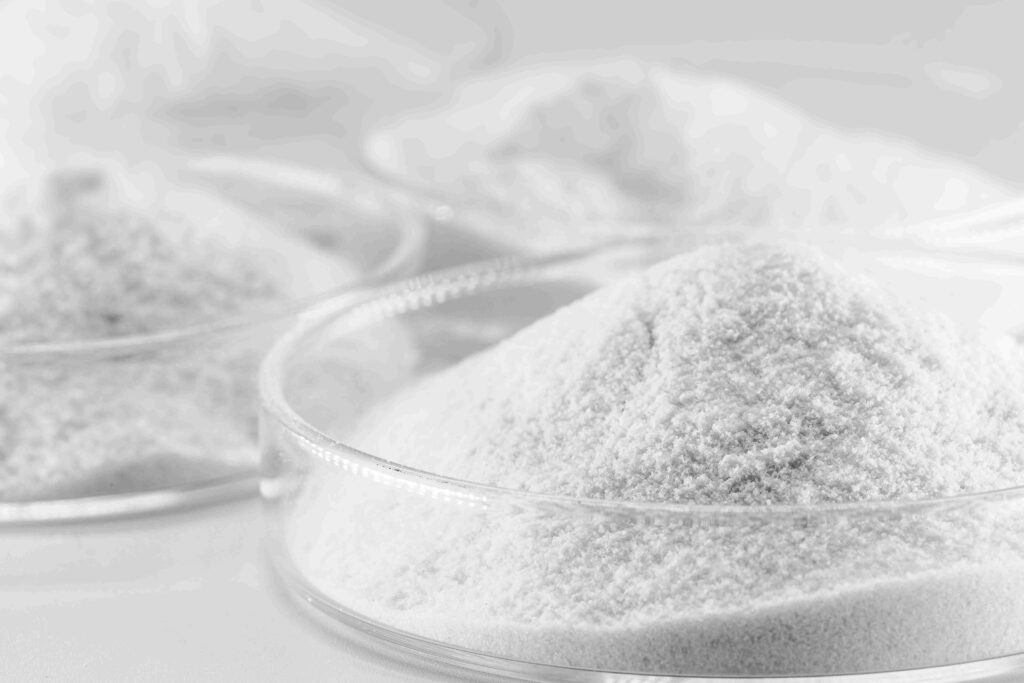What Are Human API Drugs?
API (Active Pharmaceutical Ingredients) is the basic substance that constitutes the pharmacological effect of the drug. API cannot be used directly by patients and must be further processed into preparations by adding excipients before it can be taken by patients. Intermediates are materials produced in the API process steps and must undergo further molecular changes or refinement to become APIs. The API industry in a broad sense includes APIs and intermediates.
The rest of the API is supplemented by inactive ingredients. These ingredients mainly act as fillers, binders or preservatives to increase the stability of the drug. The development, synthesis and purification of human APIs require complex chemical or biological processes, depending on the nature of the drug.
What Are the Types of Human APIs?
By Source
Chemically Synthesized APIs
Chemical synthetic drugs can be divided into inorganic synthetic drugs and organic synthetic drugs. Inorganic synthetic drugs are inorganic compounds (very few are elements), such as aluminum hydroxide and magnesium trisilicate used to treat gastric and duodenal ulcers. Organic synthetic drugs are mainly drugs made from basic organic chemical raw materials through a series of organic chemical reactions (such as aspirin, chloramphenicol, caffeine, etc.).
Natural Chemical APIs
Natural chemical drugs can also be divided into two categories according to their sources: biochemical drugs and phytochemical drugs. Antibiotics are generally produced by microbial fermentation and belong to the category of biochemistry. Many semi-synthetic antibiotics that have appeared in recent years are products that combine biosynthesis and chemical synthesis. Among APIs, organic synthetic drugs account for the largest proportion in variety, output and output value, and are the mainstay of the chemical pharmaceutical industry. The quality of APIs determines the quality of preparations, so their quality standards are very strict. Countries around the world have formulated strict national pharmacopoeia standards and quality control methods for their widely used APIs.
By Patent stage
Bulk APIs
Bulk APIs refer to traditional chemical APIs such as penicillin, vitamins, hormones, etc., which are large-tonnage and do not involve patent issues. The characteristics of this product are large output, many production enterprises, fierce market competition, and low product prices and added value. Representative varieties include vitamins, antibiotics, etc.
Special APIs
Specialty APIs mainly refer to pharmaceutical APIs whose patents are about to expire or have just expired, and for which the manufacturers have mastered mature production process technologies that can circumvent patents. Representative products include drugs for chronic diseases, central nervous system, anti-tumor, heparin, contrast agents, etc.
Patented APIs
Patented APIs are mainly supplied to original pharmaceutical companies and have patent restrictions, so they place extremely high demands on the supplier’s R&D and technical capabilities, which also brings higher added value.
How APIs Are Regulated and Controlled?
As an important medium for medical treatment, human APIs need to strictly comply with current standards in production and supervision to stringent regulations to ensure the safety, efficacy, and quality of pharmaceutical products. In addition, different regions and countries around the world have different supervision criteria for APIs. Therefore, it is necessary to pay attention to whether the drugs sold to the regions where they are used meet local standards.
Here are some examples in some regions of the world:
Europe
- Good Manufacturing Practices (GMP)
- Marketing Authorization (MA)
- Active Substance Master File (ASMF)
- Certificate of Suitability (CEP)
USA
- FDA’s Good Manufacturing Practices (CGMP)
- United States Pharmacopeia (USP)
- Drug Master Files (DMF)
Japan
- PMDA’s Good Manufacturing Practices (GMP)
- Japanese Pharmacopoeia (JP)
- Drug Master File (DMF)
China
- NMPA’s Good Manufacturing Practices (GMP)
- Chinese Pharmacopoeia (ChP)
- Drug Master File (DMF)
Market Trends of Human Medicine APIs
As factors such as an aging population, rising prevalence of chronic diseases, and widespread healthcare access in emerging economies are driving global demand for medicines, continued growth in the API market has become an inevitable trend.
Regulatory agencies around the world are constantly changing standards and regulations for API production, quality control, and safety. Compliance with various laws such as cGMP (Current Good Manufacturing Practice) is critical to gaining market access and maintaining customer trust.
Based on current market developments, technological advances such as continuous manufacturing, process automation, and analytics are increasing productivity, reducing costs, and improving API quality control.
Choose SED Ingredients as your APIS Supplier
At SED Ingredients Ltd, we pride ourselves on being your trusted supplier of quality human APIs. Starting with the quality of our raw materials, uncompromising regulatory compliance, and meeting the needs of a wide range of customers, we deliver APIs that comply the most stringent global standards. Whether you need a reliable large-scale manufacturing partner or innovative solutions to meet emerging healthcare needs, SED Ingredients has the expertise and resources to support your goals.

